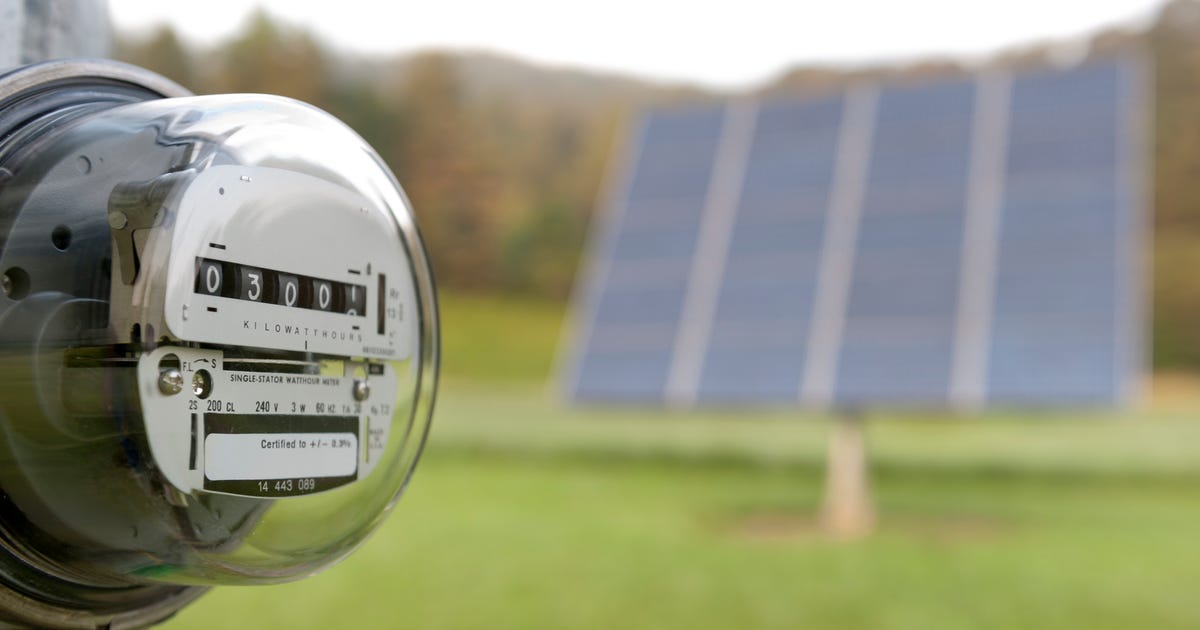Net metering how you can get paid for solar power your shed, what is net metering how does it work, net metering how you can get paid for solar power your rv, net metering how you can get paid for solar power your pool, fpl net metering, net metering states, nepra net metering license, net metering how it works, net metering how does it work, net metering how it works.

If you have solar panels on your roof, you almost certainly aren't using all of the energy they do and all that excess is sent to the grid, joining your utility's supply of electricity. If panel owners received nothing in backbone for this extra energy, solar panels would be a harder investment to define. While home battery storage can help you save the energy you don't currently use, there's a simpler (and cheaper) option available to settle this imbalance.
Net metering is one way utilities compensate you for the electricity you do, making sure you get something in return for the solar grand you produce but don't use. While net metering is the most accepted and well-known compensation scheme, there are a few others. We'll explain them all below so you can better understanding how much money your solar panels could save you over your lifetime.
How does net metering work?
In messes that offer net metering (check here to see if your position qualifies), you can sell your excess solar energy back to your utility matter in exchange for credits that offset the cost of your energy consume. You may generate excess solar power when it is positive and sunny out, but see less energy than is primary to power your home when it is cloudy or rainy. By selling your excess energy back to the utility grid, you'll be able to use the credit to camouflage the cost for any electricity you need to use. You end up paying only for the "net" energy, or the difference between how much you sold and actually used.
The types of net metering
There are three different models of net metering, and which one is available to you may sincere on your state and your utility provider.
Net metering
Net metering is the most current arrangement, and works by selling any surplus power generated by your solar panels to the utility operator in exchange for credits, which offset any electricity you may need to use from the grid. The credit is applied at the retail rate, which exploiting the rate that you pay for electricity. Only one meter is obliged to track this, though your meter may need to be upgraded when you go solar.
Buy all/sell all
The buy all/sell all model works by selling 100% of the energy that your solar panels generate to the utility concern. It is sold at wholesale price, which is cheaper for the purchases. In exchange, you get 100% of your home's energy from the utility concern, which you pay the retail rate to use. This intends two separate meters, and you will pay the incompatibility -- if any -- between the amount generated and the amount arranged. It's important to note that under this model, you do not consecutive consume any of the energy your solar panels generate.
Net billing
Much like net metering, the net billing model allows you to use the electricity generated by your solar panels and sell the excess to the utility concern at retail price. Unlike the net metering model, view, you cannot bank credits for future billing cycles. This way is more common for commercial situations than residential ones.
What to much when it comes to net metering types
In some cases you won't have a select when it comes to the type of net energy metering way, as utility companies may only offer one option. However, if you can choose, you'll want to keep in mind a combine things.
Net metering is the most common option for a reason: it's the simplest to view. You get credits for energy sold and those credits are at retail notice, meaning they are paid at the same rate that you pay for your electricity. That makes the math simple.
However, that doesn't mean it's the best deal available to you. If you're in a status where you expect to generate a lot of electricity -- a status where it is sunny most of the time and there isn't much rain or free cover to interfere with your panels -- a buy all/sell all option may work better. While you'll be selling at a wholesale rate, meaning it is a touch rate for you since you are acting as a provider, you'll also be selling much more than you otherwise would. All of your solar power generation will be monetized, as opposed to just the excess.
You should also keep in mind spanking fees associated with net metering. For instance, you may have to pay a connection fee. This is a monthly expense that you pay for connecting to the utility company's grid. It typically isn't much, between $10-20 per month, but it is an expense to keep in mind.
No concern what arrangement ends up working best for you, net energy metering a tremendous way to get the most out of your solar panels. Not only does it allow you to power your own house or pay for your full electricity use, but it also gives you to monetize your energy generation and let others make use of it.
Source
